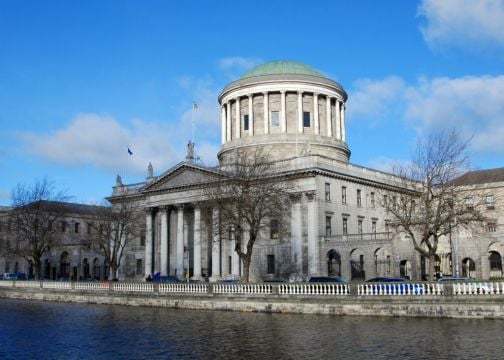The exclusion of a Tipperary man from receiving the widower’s contributory pension on account of having never married his late long-term partner is based on “prejudice and discrimination”, the Supreme Court has been told.
John O’Meara and his three children, from Nenagh, Co Tipperary, are appealing the refusal by the Minister for Social Protection to grant the pension following the death of Michelle Batey, who was Mr O'Meara's partner of about 20 years and the children’s mother.
The hearing of their appeal resumed before a seven-judge Supreme Court on Monday following a three-month adjournment to enable the applicants’ lawyers to include new arguments in a case the Chief Justice, Donal O’Donnell, said contains several “very important” legal issues.
Mr O’Meara, an agricultural contractor, and Ms Batey eventually planned to marry, but she fell into a coma and died in January 2021 after contracting Covid-19 when she was recovering from breast cancer, the court heard.
On Monday, the O’Meara’s’ senior counsel, Derek Shortall, submitted that the High Court was wrong to conclude the Widower’s (Contributory) Pension is designed only to provide for the needs of a surviving spouse.
The benefit, said Mr Shortall, has more than one purpose and is “clearly” meant to provide for children, as it increases per additional dependant child. Seemingly one of only two benefits requiring marriage, this social welfare payment “appears to be an outlier” in having the effect of excluding children, he added.
There is no difference between a marital and non-marital family in this context because Mr O’Meara has “essentially the same obligations” to his children as a widower would have.
“The blanket exclusion of this parent, these children, this family is essentially based on prejudice and stereotype,” he said.
Mr Shortall agreed with a proposition put to him by Mr Justice Séamus Woulfe that promoting marriage is a “legitimate aim” of the State. “It is in the Constitution; it has to be accepted,” Mr Shortall said.
Opposing the claims on behalf of the State, Attorney General Rossa Fanning began his submissions by acknowledging the very sad loss of Ms Batey, which has given rise to the constitutional challenge.
Ultimately, he said, the case before the court is a narrow one: “Is the Oireachtas entitled, as a matter of policy choice, to provide a social welfare benefit to surviving spouses of a marriage that it does not provide to surviving cohabitees?”
Constitution
In the case of the widower’s pension, he said, the sharp distinction is “entirely consistent” with the Consitution, particularly considering article 41.3, which “commits the State to guard with special care the institution of Marriage, on which the Family is founded, and to protect it against attack”.
The court previously heard references to the family in article 41 may be included as part of an upcoming referendum.
Mr Fanning said on Monday that the widower’s pension eligibility was expanded previously in “very specific circumstances” to include civil partners so people in same-sex relationships could benefit from certain legal protections and benefits they were otherwise locked out from when they were prohibited from marrying.
But the situation here is distinguishable from the circumstances of gay and lesbian couples who “did not have a choice” to get married prior to the introduction of same-sex marriage legislation in late 2015.
For a long time the taxation and social welfare advantages attached to marriage have been known, and there are “consequences to decisions people make”, Mr Fanning went on.
Here, the evidence was that Mr O’Meara and Ms Batey made an early decision not to marry and later changed their minds but, unfortunately, it was too late, he said.
Mr Fanning said it is open to the Oireachtas to expand this benefit to include categories of cohabitants, and it “may well be that court cases highlight anomalies to the legislature”. However, in this appeal, it is his job to “stand over a policy choice that has been made”.
The appeal continues before the seven judges on Tuesday.







